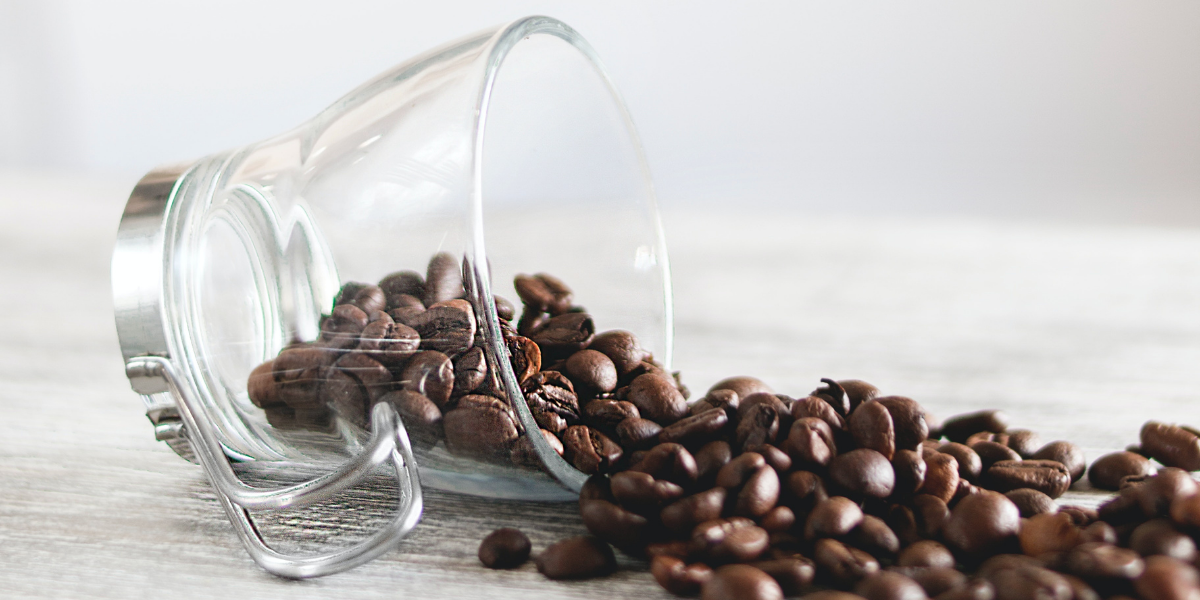It’s the world’s most popular stimulant and a friend to many of us but what’s the truth about caffeine and how it benefits us? Can you imagine mornings without it?
How much caffeine should we have?
Caffeine is a bit of a fickle friend – routine users of caffeine won’t get the same euphoric effects as those who don’t have it often and it can also promote anxiety in some.
The body adapts to its effects; just one cup of coffee a day will increase your tolerance and more of the same won’t give the same ‘hit’ again, so if you want to it to feel the true benefits, you’ll need to wean yourself off it for a while to allow your tolerance to fade.
The sciencey bit – how does caffeine work?
Caffeine blocks different adenosine receptors in the brain, with varying effects. By blocking the A1 receptor, which promotes sleepiness when activated, caffeine can increase alertness. By blocking the A2A receptor, caffeine can increase dopamine levels, which has stimulating and mood-enhancing effects.
The A1 receptor doesn’t seem to get desensitized, which may be why caffeine doesn’t lose its awakening effect. The A2A receptor does get desensitized, however, hence why habitual drinkers don’t feel all the benefits.

How caffeine benefits us
As well as getting us through some crazy mornings, life juggles, or overflowing inboxes, caffeine has also been shown to benefit mood and focus by increasing adrenaline and dopamine. Unfortunately though, if we keep drinking it regularly our own body’s dopamine production down regulates so we rely on the caffeine more just to regain normal levels.
Coffee in particular does seem to be associated with longevity. Large observational studies find coffee drinkers to live longer, probably due to the powerful polyphenolic compounds in the coffee beans, not the caffeine. There may also be links to socialising which is known to be good for longevity too.
Questions to ask yourself about caffeine
Is it part of your toolkit to help you perform when you really need it or is it a crux that you are relying heavily upon?
I often find with the clients I see that caffeine can mask an underlying fuel need that isn’t being met. It tricks our body into feeling alert and we plough on through. However, we can only fool our physiology for so long; without sufficient carbohydrates and other fuels to feed our brains and muscles and regulate our blood glucose levels, we can experience swings in energy levels and low mood.
In other words, caffeine disrupts our ability to tune in and this is made more challenging if we’re fearful of certain food groups, or unsure just how much we should be eating to fuel our brilliance (!) ….or just an average Monday.
We also know that because it takes a while for the body to break it down, it will have an impact on sleep – you may not notice you struggle to fall asleep, but it will affect the quality of that sleep you’re in…. which in turn will have an impact on how hungry you feel the next day. Hunger hormones that tell us we need to eat go up, and the hormones that tell us we’re full, go down.
So, as we head out and about again, here are a few things to bear in mind from the local coffee shop…

• Most coffees (latte, cappuccino, americano) will use two shots of coffee
• Different coffee roasts will also differ in caffeine content
• It is important to note that decaffeinated coffee is not completely caffeine free
• Filter coffees have the most caffeine because of the time it is left to brew
• Some syrups may also contain caffeine.
In independent shops, clarify how many shots they use in their regular drinks and ask if they know the caffeine content of the blend they use.
Common comparisons
| Shop | Regular/Tall/Medium
Latte |
Regular/Tall/Medium Americano | Single shot |
| Costa | 185mg | 277mg | 100mg |
| Starbucks | 150mg | 150mg | 75mg |
| Nero | 160mg | 160mg | 80mg |
The truth about caffeine
When it comes to caffeine, there are a few things to think about the truth for what it can do and how it benefits us. I’d love to know your thoughts on caffeine and how you use it day-to-day.


Leave A Comment